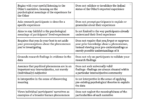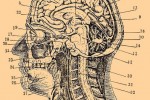Phenom Research: What it is, what it isn’t
Jan 17th, 2019 | By Marc Applebaum
Notes from a seminar I’m giving this weekend introducing phenomenology to psychological researchers. Those familiar with the tradition will see how the epochê, reduction, bracketing, striving for presuppositionlessness, and inquiring into the Other’s natural attitude meanings are represented here–as well the situatedness of research findings–reflecting a particular, psychological interest.



